Instagram Ads Guide: Tactics Brands Use to Generate Revenue


Instagram now accounts for roughly a third of all Facebook ad spend, up from only a quarter a year ago.
With active users on track to reach 1 billion this year, strong impression growth, and expanding ad inventory that helps close the bottom of the funnel has made the image-sharing platform a great channel for growing your brand.
Here’s a look at how to advertise on Instagram in 2019, a rundown of the ad formats, campaign types, costs, and some tactics you can use to hit your marketing goals on Instagram.
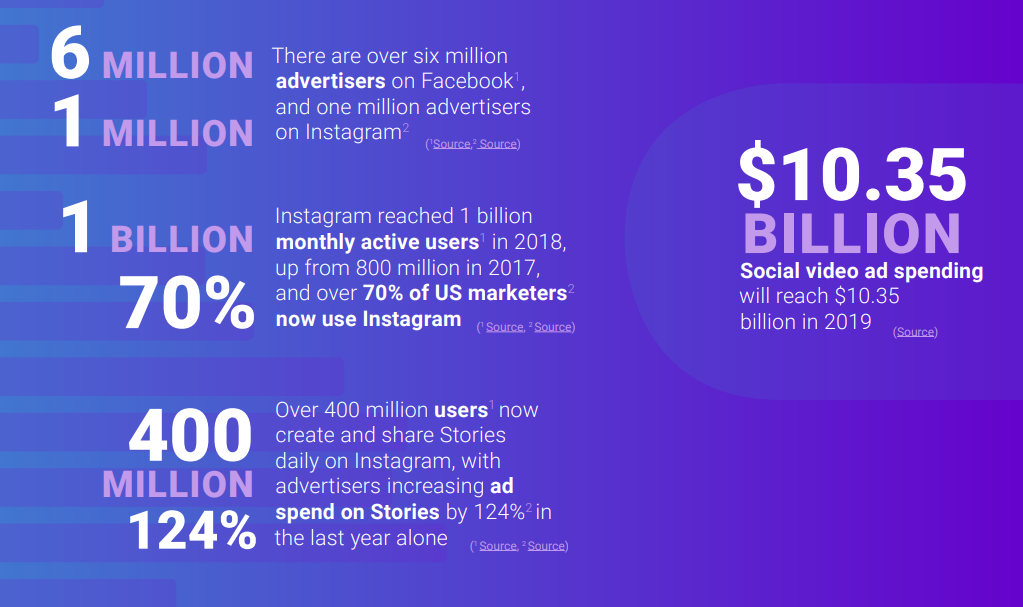
It used to be that if brands wanted to advertise on Instagram, they had to partner with an influencer and have them promote their products. While this is still an effective marketing strategy, there are several downfalls including:
Now, all you need to start advertising on Instagram is to head into Facebook’s Ads Manager platform or create ads directly from within your Instagram Business Account.
With this platform, you can track your ad performance from your brand accounts, scale or narrow down your target audience, and retain full control of your marketing efforts.
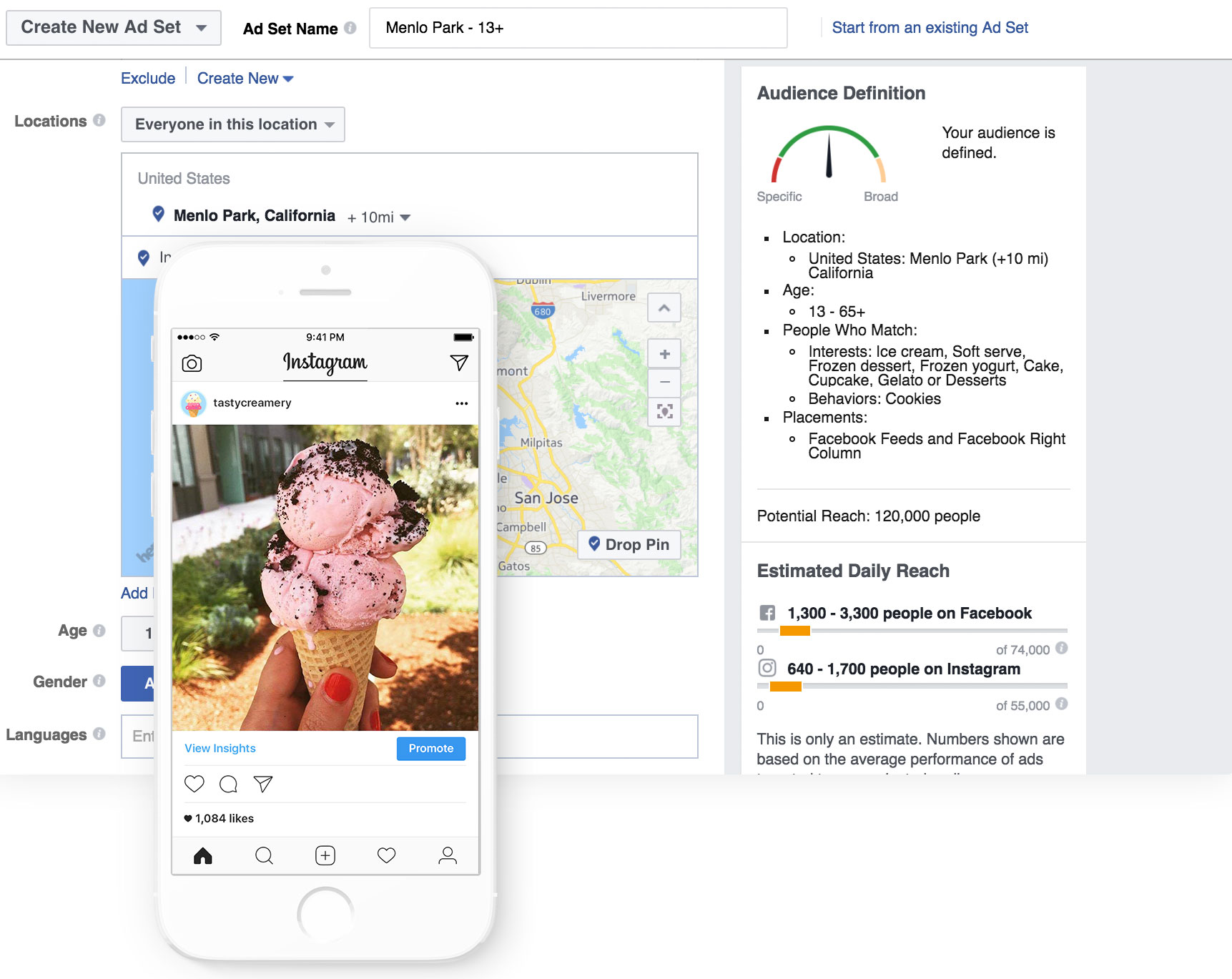
In order to understand how to advertise on Instagram, brands need to have an understanding of the 5 different ad types offered and how they should be used.
1. Photo Ads
Simple but classic, photo ads are one of the easiest types of Instagram ads to make.
They’re made up of just one photo, featured in either landscape or square format, and are a great way for brands to draw in new fans with creative imagery.
2. Carousel Ads
Carousel ads feature between 2-10 images and let users swipe between them, allowing brands to show off their range of products in one ad.
This is especially useful for brands who are launching a new line of products or collections.
3. Video Ads
Video ads feature videos that can be up to 60 seconds long and are featured in either landscape or square format. These types of ads are a good way for brands to inspire customers with dynamic footage.
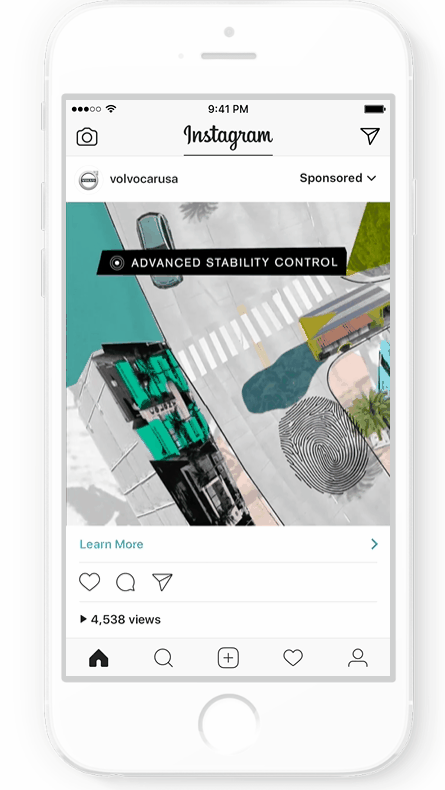
4. Story Ads
Instagram now allows brands to launch their own Instagram Story Ads; photos and videos to their fan’s Stories feed for a limited amount of time.
With over 500 million people actively using Stories every day, this is a great way for brands to get in front of their target audience.
“Stories is still an under-utilized placement on Facebook and Instagram, and often ads aren’t properly fitted to a vertical ratio,” says Sarah Sanchez, Manager of Performance Social at Tinuiti.
“Stories will continue dominating social media behavior in 2019 and brands should focus on meeting consumers where they’re spending their time.”
One of the most effective ways to target users who will turn into customers is through retargeting campaigns.
Instagram gives you the ability to interact with users who have previously interacted with your brand and profile. Using this information, you can bring back lost opportunities, such as abandoned shopping carts, and reach out to bring those users back.
CRM lists are especially valuable for retargeting efforts. Using your CRM lists and web owned data, you can create lookalike audiences to reach an entirely new segment of qualified leads.
Once you’ve begun your retargeting efforts, it’s time to focus on prospecting. Instagram’s massive platform means that there are millions of new users out there and using your CRM lists to create lookalike audiences is a great way to tap into this market.
Customer research is also an integral part of prospecting efforts. By identifying your target’s interests, behaviors, and commonly used keywords, you can begin to target broader segments of users.
“Recently, we partnered with J Brand to help them generate revenue using Instagram ads. Initially, we were given just one long seed list, which we then separated into customers who purchased twice.”
—Jihane Jeanty, Tinuiti Sr. Specialist, Paid Social
“By identifying customers with a high average order value, we were able to create a VIP list that we then created lookalike lists from. From there, we used retargeting campaigns to increase revenue.”
Prospecting and retargeting are crucial to getting more customers, but Instagram also offers you the ability to use paid ads to place ads within the feed and stories of users.
Before you funnel money into paid Instagram ads, make sure that you’re up-to-date on Instagram ads best practices. Ideally, your ads should include:
In addition, make sure to pay attention to Instagram’s ad specs. Depending on the ad type you’re using, this could affect your content and creative.
Video ads have seen a boost in popularity due to their high engagement rates and ROI. An effective video ad looks like it belongs in your user’s feed, providing a non-disruptive experience that appeals to their interests. Brevity is key to success with video ads—we’ve found 6-15 seconds to be the optimal sweet spot.
Instagram user feeds are filled with thousands of images and videos, making it important to stand out from the crowd. When designing your video ad, use bright colors to draw the eye and then hold their attention with relevant captions and text overlay.
No matter what kind of Instagram ad type you use, the caption matters. We updated the creative on Empire Education’s testimonial videos and then ran the numbers.
The result?
Empire Education saw an immediate 24% reduction in CPAs and a 48% increase in conversion rates.
“Once we added captions and relaunched the videos with those captions, it completely changed the game for us.”
—Jihane Jeanty, Tinuiti Sr. Specialist, Paid Social
Don’t be afraid to experiment when using paid advertising. Controlled A/B testing can be a main driver of revenue and not just when it comes to captions. Investing in optimizing creative performance can also lead to significant boosts in revenue.
Instagram Stories play into the authentic feel that users want to see from brands. Because they are placed in users’ Stories, this allows brands to adopt a more playful approach to advertising.
This ad format is still in the early phases, so there’s plenty of opportunity to boost your social ROI if you can get your audience to interact.
We wanted to see just how Instagram Stories ads did against traditional feed ads so we ran a test pitting two ads optimized for their respective ad type against each other. Both ads did well, but the Instagram Stories ad came out on top with a 91% greater ROI and an 88% increase in CVR.
—Jihane Jeanty, Tinuiti Sr. Specialist, Paid Social
4. Influencers Offer Great Social Proof for Your Brand
Instagram is one of the top platforms for utilizing influencers to boost revenue. CivicScience conducted a study recently that found 34% of Instagram users have made a purchase based on an influencer’s recommendation, higher than rates on Twitter, YouTube, and Facebook.
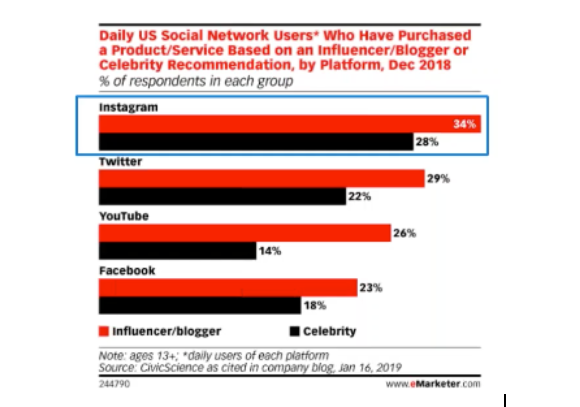
“To take advantage of the platform, we developed an influencer strategy for J Brand that used influencer creative to huge success. Compared to brand imagery, ads that used influencer advertising saw a 38% increase in orders and revenue.”
—Jihane Jeanty, Tinuiti Sr. Specialist, Paid Social
“As you’re thinking about your Instagram strategy I would recommend partnering with influencers. It takes a little bit of time to start those conversations but once you do you will get that return back.”
Dynamic product ads coupled with collection ads are the powerhouse couple of the century. Dynamic product ads allow you to create an ad template that automatically populates itself with relevant images and data for your users.
Collection ads, on the other hand, allow you to make a purchase directly from the ad. Together, you can use these to retarget users who have interacted with your brand to invite them to take direct action from within the app itself.
How much does it cost to advertise on Instagram?
The answer: it depends.
In order to know how to advertise on Instagram, you need to know how much you’re going to spend.
In 2019, Adstage ran the info of over 390 million ad impressions and 5 million clicks on Instagram and the results are as follows:
Keep in mind that these numbers can vary depending on your target audience. It seems that the cost for very general or very niche audiences ran significantly higher than audiences that fell somewhere in the middle.
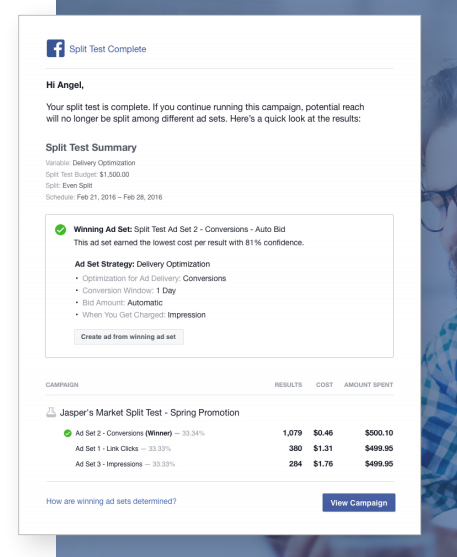
For more information on projecting and controlling your Instagram ads costs, check out Instagram Ads Cost: The Complete Budgeting Guide for 2019.
Advertisers are going to continue to invest and compete more fiercely for the highly engaged audiences of Facebook & Instagram—and it will be the power of creative that drives performance more than any other input in the long run.
Advertisers can hone in targeting, ad formats, value props and more—but it will ultimately be the visuals that stop someone scrolling in their feed or swiping in their stories to stop and engage with your brand.
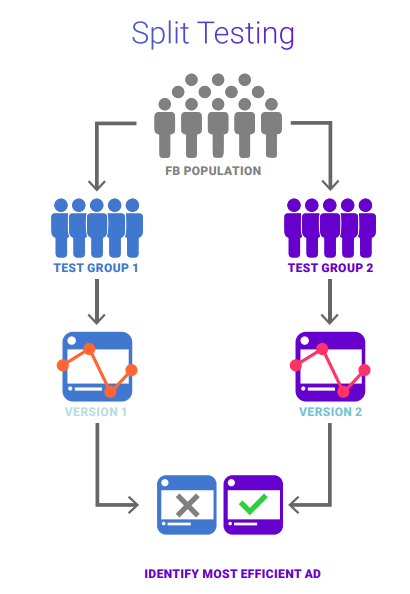
That’s why it’s more important than ever to:
“Increased volume of direct brands has led to increased audience overlap and competition. This calls for a renewed focus on leveraging creative as a strategic differentiator. Brands need to design with conversions in mind if they want to stand out from millions of creative agencies and competitors.”
-Jon Gregoire, Director of Demand Generation at Tinuiti
